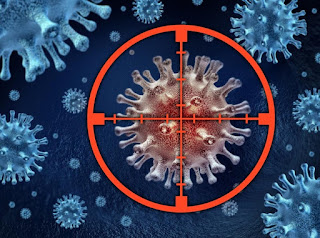Side Effects of Radiation Treatment for Mesothelioma Patients
Radiation therapy uses beams of high-energy particles to reduce tumors. However, the biggest risk associated with radiation therapy is the potential for healthy tissues to get damaged, causing a number of side effects.
Treatment with external beam ionizing radiation may cause sunburn-like changes to the skin under the treatment beam. Patients also tend to lose hair over the treatment area. It is also quite common for people to experience fatigue after radiation therapy. These side effects may worsen or last longer if radiation therapy is combined with chemotherapy.
Other side effects of radiation vary depending on the location of the body receiving treatment. In other words, patients receiving radiation therapy to the chest may have different side effects than individuals who receive radiation therapy directed at the stomach or upper abdomen.
Side Effects of Pleural Mesothelioma Radiation Treatment
Below are side effects of radiation therapy directed to the chest that may occur in patients with pleural mesothelioma.
- Fatigue
- Hair loss
- Skin changes
- Cough
- Shortness of breath
- Throat changes and problems swallowing
- Breast/nipple soreness
- Radiation pneumonitis
- Radiation fibrosis
- Irregular heart beats
- Heart valve damage
- Premature hardening of the arteries (atherosclerosis)
Side Effects of Peritoneal Mesothelioma Radiation Treatment
Peritoneal mesothelioma patients who receive radiation to the abdomen or stomach region may experience the following side effects.
- Fatigue
- Diarrhea
- Nausea and vomiting
- Hair loss
- Skin changes
- Bladder and urinary problems
Common Side Effects
Skin Problems
For most people receiving external beam radiation treatment, the changes to the skin of the treated area are similar to that of a moderate or severe sunburn. The affected area may become red, itchy, dry, or flake and peel much as it does after sunburn. If the skin cells in the treated area slough off and do not have time to grow back during treatments, the skin may become moist, swollen, inflamed, and even infected. Radiation therapy may cause the darkening discoloration of the skin in the treated area.
- Redness
- Irritation
- Itchiness
- Flaking or Peeling
- Darkening
The radiation treatment team takes any skin changes seriously. Skin in the treated area will be thoroughly examined before each radiation treatment. Patients should voice any concerns they have to their treatment team.
It is always a good idea to protect the skin from excessive amounts of direct sunlight, but this is especially true during radiation therapy. Additional radiation from the sun can be avoided by keeping skin covered or by using sunscreen with an SPF of 30 or higher. Tanning beds should be avoided. Certain lotions and creams may help moisturize the skin, reduce peeling, and relieve itchiness and burning. The radiation therapy team should be notified of any creams, lotions, or anything else applied to the skin. These products should not be used immediately before radiation therapy unless approved by the radiation oncologist. If the skin becomes infected, rather than simply inflamed, antibiotic treatment is usually required. This may be a topical antibiotic placed directly on the skin. For cellulitis, a more serious skin infection, an oral or intravenous antibiotic may be needed.
The skin changes associated with radiation therapy may develop in the days to weeks after the first treatment session. Many of the skin changes will go away within the weeks following the last treatment; however, some changes may be permanent. Redness, itching, and swelling of the skin usually only lasts for a short time. Skin discoloration and dark blotchy areas may never go away. Because of the radiation received during treatment, this area of skin is at increased risk of developing skin cancer the rest of the patient’s life. Moreover, the treated area will be permanently more sensitive to the effects of the sun, such as sunburn.
Fatigue
Fatigue is a vague term that describes a number of different feelings such as weakness, tiredness, heaviness, slowness, and exhaustion. While fatigue is a common side effect of radiation therapy, the precise cause of fatigue may be different for different people. In fact, more than one cause of fatigue may be occurring at any given time. Moreover, most patients with mesothelioma receiving radiation therapy will not know their precise cause or causes of fatigue.
Fatigue that occurs during radiation therapy may be caused by:
- Anemia
- Depression
- Infection
- Chronic stress
- Physical inactivity
- Older age
- Poor overall health
- Sleep disturbances
- Certain medications
If fatigue is caused by anemia (an abnormally low number of red blood cells), depression, infection, sleep disturbances, or medications, a specific treatment or change in treatments may help resolve the issue. For example, severe anemia can be treated with blood transfusions or drugs stimulate the production of red blood cells. Likewise, depression can be treated with a combination of medications and psychotherapy. People who experience fatigue should discuss the symptom with their oncologists.
There are other ways to manage and reduce feelings of fatigue during radiation therapy. Patients can plan work, responsibilities, personal tasks, and medical appointments such that they do not overexert themselves. Patients should strive to get at least 8-9 hours of sleep every night and supplement that sleep with 20 minute naps during the day, as needed. Excessive daytime sleeping should be avoided, however, because it may disrupt the patient’s natural sleep cycle and make it more difficult for them to get a solid eight hours of nighttime sleep. Patients who can tolerate exercise may find it helpful to exert themselves during the day so that they can build up a reserve through greater physical fitness. Moreover, people who physically exert themselves during the day are more likely to be ready for sleep at a normal hour at night, which can help with insomnia.
Some patients will no longer have feelings of fatigue as early as six weeks after the final radiation treatment area. That said, most people who undergo radiation therapy for malignant mesothelioma will have less energy than they did before treatment. While fatigue is common, it does not mean it is untreatable or unmanageable. Patients should talk to their physicians about possible solutions for fatigue as needed.
Nausea and Vomiting
Radiation therapy for peritoneal mesothelioma may cause nausea and vomiting. Patients may also experience dry heaving. These side effects may occur when the stomach and/or intestines receive radiation. Usually, nausea and vomiting will occur soon after a radiation treatment has ended and may last for several hours. Some people may experience nausea prior to a treatment, especially if they have apprehensions or fears about treatment. Nausea and vomiting may be worse for patients who are also being treated with chemotherapy.
Nausea is less likely to occur when patients eat frequent, small, relatively bland meals during the course of treatment. Likewise, patients should avoid foods that are spicy, densely sweet, or high in fat. Foods and beverages should be neither too hot nor too cold. Some people have less nausea if they eat a small meal before radiation treatment. Others find it is best to not have food in the three hours prior to radiation treatment. A list of foods that tend to be easy on the stomach are listed in Table 2.
Some patients find activities such as meditation, yoga, or acupuncture help relieve sensations of nausea and reduce vomiting. If nausea tends to occur prior to treatment, experts recommend patients pursue relaxing activities before therapy such as listening to relaxing music, reading light nonfiction, or meditating. Medicines are available that can reduce sensations of nausea, so patients are encouraged to speak with a medical professional about treatment options.
Bladder Irritation
If radiation is directed towards the bottom of the abdomen near the urinary bladder, as may be done in the treatment of peritoneal mesothelioma, it may cause bladder irritation and urinary problems. Bladder irritation may manifest itself in many ways, including:
- Difficulty urinating, such as starting to urinate
- Not being able to fully empty the bladder
- A frequent need to urinate
- Urgently needing to urinate
- Burning or pain during urination
- Incontinence, especially stress incontinence, which is unintended urination after a cough or sneeze
- Painful bladder cramps
- Blood in the urine
- Frequently waking at night to urinate
Most patients who experience bladder irritation from radiation therapy first notice problems within a month of beginning therapy. For most people, these bladder issues will end on their own within two months after radiation therapy is finished. While patients can take comfort from the knowledge that bladder irritation is temporary, there are measures that can be taken to avoid or reduce this complication.
Patients should avoid caffeinated beverages such as black tea, coffee, and soda because these beverages tend to increase the frequency of urination. Alcohol has the same effect on urination, and should also be avoided. On the other hand, experts recommend patients undergoing radiation therapy drink sufficient amounts—at least 6 cups per day—of non-caffeinated beverages such as water, sports drinks, and juices (especially cranberry juice). While patients may need to urinate more frequently because of increased fluid intake, the bladder is less likely to become irritated or infected during treatment.
If bladder irritation or incontinence becomes unmanageable, patients should ask their doctor about specific treatments. Physical therapists can teach patients pelvic muscle exercises and relaxation techniques that can improve incontinence. If the bladder becomes infected, antibiotics will be prescribed to treat the infection. Since the symptoms of a bladder infection and bladder irritation from radiation therapy are the same, namely pain on urination, increased frequency of urination, and an increased need to urinate, it is important patients talk to their doctor about the symptoms so that an accurate diagnosis can be made.
Factors That Impact A Patient’s Risk of Experiencing Side Effects
Whether or not a patient experiences side effects depends on a variety of factors, including:
- Overall Health
- Dose of radiation, daily and total
- Location of treatment on the body
- Genetics
- Other treatments such as chemotherapy
1. Rice DC, Stevens CW, Correa AM, et al. Outcomes after extrapleural pneumonectomy and intensity-modulated radiation therapy for malignant pleural mesothelioma. Ann Thorac Surg. Nov 2007
2. Buduhan G, Menon S, Aye R, Louie B, Mehta V, Vallières E. Trimodality Therapy for Malignant Pleural Mesothelioma. Ann Thorac Surg.
3. Krayenbuehl J, Dimmerling P, Ciernik IF, Riesterer O. Clinical outcome of postoperative highly conformal versus 3D conformal radiotherapy in patients with malignant pleural mesothelioma. Radiat Oncol. 2014.
4. Krayenbuehl J, Oertel S, Davis JB, Ciernik IF. Combined photon and electron three-dimensional conformal versus intensity-modulated radiotherapy with integrated boost for adjuvant treatment of malignant pleural mesothelioma after pleuropneumonectomy. Int J Radiat Oncol Biol Phys. Dec 1 2007.
5. Rosenzweig KE, Fox JL, Zelefsky MJ, Raben A, Harrison LB, Rusch VW. A pilot trial of high-dose-rate intraoperative radiation therapy for malignant pleural mesothelioma. Brachytherapy. 2005.
6. Lee TT, Everett DL, Shu HK, et al. Radical pleurectomy/decortication and intraoperative radiotherapy followed by conformal radiation with or without chemotherapy for malignant pleural mesothelioma. J Thorac Cardiovasc Surg. Dec 2002.
7. https://www.maacenter.org/treatment/radiation/side-effects-of-radiation/










